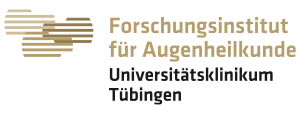Ueffing Lab
Molecular Biology of Retinal Degenerations
Home » Labs » Ueffing Lab » Panoptes
Peptide-based Nanoparticles as Ocular Drug Delivery Vehicles
Panoptes
Facts & Figures
PANOPTES is supported by funding from the Nanosciences, Nanotechnologies, Materials & New Production Technologies (NMP) Theme of the Cooperation Programme, under the 7th Research Framework Programme of the European Union.
Duration: 4 years
Abstract
This project will develop methodology for the manufacture of novel peptide-based nanoparticles and nanocapsules to satisfy an unmet clinical need: sustained drug delivery to the posterior segment of the eye. Polyester micro- and nanoparticles that have been proposed for ocular drug delivery have several major drawbacks: acidic degradation products cause inflammation; drug release is difficult to control; and peptides and proteins are difficult to encapsulate. A platform of novel, peptide-based nanomaterials, formed through bioinspired self-assembly processes, will be developed to overcome these problems.
Peptide-based materials have a number of attractive features: biodegradation gives non-inflammatory products; self-assembly occurs under mild conditions; they possess a rich chemical diversity; they are defined at the sequence level. Polypeptides and peptide hybrid materials will be processed into nanoparticles, polymeric vesicles (polymersomes) and nanocapsules.
These biodegradable and biocompatible materials will be used as containers for the loading, controlled release and cellular delivery of therapeutic molecules. The consortium therefore will enable the industrial manufacture of as-yet unobtainable, high value nanotechnology-based products utilising intrinisically low-energy demand nanobiotechnological phenomena. These will produce a step change improvement in the quality of products for sustained drug delivery to the posterior segment of the eye, enhancing the competitiveness of European industry.
Project Collaborators
University of Durham, U.K. (Prof Neil Cameron, Coordinator)
Radboud University Nijmegen, the Netherlands (Prof Jan van Hest)
Dutch performance materials and life sciences company DSM Ahead BV, the Netherlands (Dr Aylvin Dias)
University of Helsinki, Finland (Prof Arto Urtti)
Complutense University of Madrid, Spain (Profs Rocío Herrero Vanrell and José Ramírez)
Eberhard Karls University Tübingen, Germany (Prof Eberhart Zrenner)
Scientists in Ueffing Lab
Dr. med. Blanca Arango-Gonzalez
Related Publications
- Trifunović D, Sahaboglu A, Kaur J, Mencl S, Zrenner E, Ueffing M, Arango-Gonzalez B, Paquet-Durand F Neuroprotective Strategies for the Treatment of Inherited Photoreceptor Degeneration. Curr Mol Med. 2012 Jun;12(5):598-612. Review.
- Julien S, Peters T, Ziemssen F, Arango-Gonzalez B, Beck S, Thielecke H, Büth H, Van Vlierberghe S, Sirova M, Rossmann P, Rihova B, Schacht E, Dubruel P, Zrenner E, Schraermeyer U. Implantation of ultrathin, biofunctionalized polyimide membranes into the subretinal space of rats. Biomaterials. 2011 Jun;32(16):3890-8.
- Arango-Gonzalez B, Szabó A, Pinzon-Duarte G, Lukáts A, Guenther E, Kohler K. In vivo and in vitro development of S- and M-cones in rat retina. Invest Ophthalmol Vis Sci. 2010 Oct;51(10):5320-7. Epub 2010 May 12.
- Sancho-Pelluz J, Arango-Gonzalez B, Kustermann S, Romero FJ, van Veen T, Zrenner E, Ekström P, Paquet-Durand F. (2008) Photoreceptor Cell Death Mechanisms in Inherited Retinal Degeneration. Molecular Neurobiology 38(3):253-69.

